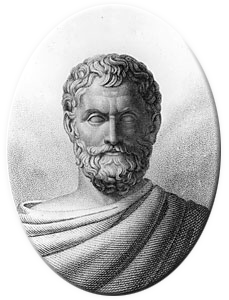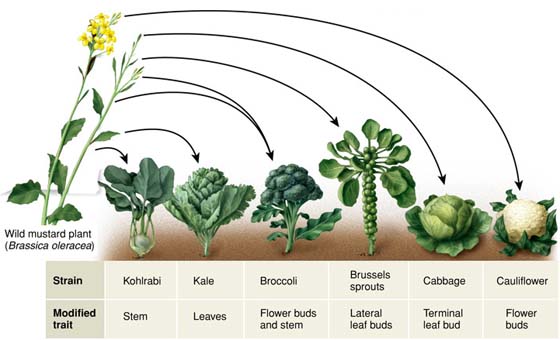LOL, for those like myself who are unfamiliar with the order in which "God creates" (Einstein's God, that is)
"A transcriptome is a collection of all the transcripts present in a given cell. There are various kinds of RNA. The major type, called messenger RNA (mRNA), plays a vital role in making proteins."
(Source)
Killing Einstein's God
"...Krauss, and Richard Dawkins, who makes similar claims in his bestselling 2006 book The God Delusion, are making a serious historical mistake. It has to do with the definition of "God," both for Einstein and, in contrast, for religious people around the world. As someone who has spent a decade and a half studying Einstein's writings, I see it as my responsibility to correct this prevalent misconception [...] Albert Einstein believed in something like Spinoza's "God": a powerful entity that transcends the world. To Einstein, "God" was the maker of the laws of physics that he, Einstein, saw as his life's role to uncover. This is far from the "God" of all organized Western religions, to be sure, but it is equally far from Krauss' "universe from nothing," meaning a universe without any maker of the rules of physics or any creator of the quantum foam that gave rise to our universe through a quantum fluctuation. Krauss places a "[sic]" after "God" when quoting Einstein mentioning the "deity." He tries to reinterpret Einstein's words as not meaning what he writes. Richard Dawkins does the same in a chapter titled "A Deeply Religious Non-Believer," referring to Einstein.
But these are unjust pronouncements."
- Amir D. Aczel is a lecturer in mathematics and the history of mathematics and science, and an author of popular books on mathematics and science.
(Source)
Einstein raised doubts in the concept of God envisioned and created in the image of modern judeo-christianity. I do too.
The mysterious "God" Einstein knew of is unknown to western religions.
Likewise... when I read and re-read the opening of Genesis, it began to dawn on me, after many years, "...these words are not saying at all, what the Young Earth, "Designer" creationist crowd, are attempting to interpret it to do." The descriptions are of evolution, "every plant of the field before its kind was in the earth, though no plant of the field yet grew" and God commanded... "the water, the earth... to bring forth living creatures, "after their kind," -- the opening writers were (as I only recently realized) speaking from ancient Greek wisdom -- and there was no word in the Greek for "Evolution".
"...From Genesis to Revelation it is a Greek document, written around 300BC in Alexandria Egypt..." "...Jewish people who became Greeks migrating to Alexandria in 300 BC, who wrote the Bible under Greek direction, and in the Greek language."
(Source)
The ancient Greeks were ahead of their time.
The western religions today, do not know God's "mysteries".
The ancient people of Greece did not need a university degree in Biology to understand evolution, or "artificial selection". The entire ancient near-east practiced SCIENCE; the cultivation of livestock and produce in their daily lives. The Egyptians made a religion based on their agriculture and nature. Many of their great religious deities were actually scientists/men of medicine. They saw the "natural fact" they could take a useless plant in the wild, cultivate it, to where it would produce desirable fruits/vegetables.. transforming with each successive generation, "after its kind," -- or evolving, and if it were possible to do with agriculture (cultivation through "artificial selection") then, surely the great minds of Greece surely must wonder, that same occurs in nature. (Thales of Miletus, attributed "water" as the first cause) Therefore, God said, "Let the waters bring forth moving creatures after their kind," -- it would have been normal to the people of the ancient near east, who had cultivated wild Aurochs and other beasts, into the domesticated "cattle" as they are known today... "cattle after their kind," -- the Greeks and Egyptians had seen it done. These ancient scientists religiously worshipped agriculture.
Smarter than western religions.
The "Sacred" Olive Tree of the Bible (cultivation in Greece).
"...Nothing is more characteristic of Crete than the millions of olive trees that grow in valleys and mountainous areas. Cretans have been cultivating the olive tree and have been using olive oil since 3500 BC during the early Minoan period, as archaeological findings have proved. The olive tree (Olea Europea) is one of the few trees that can still produce fruits even in rocky and unproductive land. Olea’s main characteristic is its longevity and the preservation of its productivity. The olive tree has been the symbol of wisdom and peace. The olive tree was the sacred tree of goddess Athena and Athens, the capital of Greece, took its name from the goddess. Zeus had decreed that the city should be given to the god who offered the most useful gift to the people."
(Source)
YEC and other creationists (the western religions) take for granted that (cabbage, onion, garlic, lentils, chick pea, beans) and orchards (fig, almond, pomegranate) come in the form "God designed" them... "before Adam."
But God did not "design" them. The author of Genesis, says so. The author of Genesis explains, "Every plant of the field BEFORE IT was in the earth" and "No plant of the field yet grew for there was no man to til the ground."
The Greeks lacked a word for "evolution" that is associated with "artificial selection," or, "cultivation."
Ancient religious obsession with their Agriculture.
The ancient near east deified their scientists.
One of the Egyptian's "gods"...
Imhotep: The Father of Mathematics (architecture, mathematics, medicine and patron of the scribes)(Source)
The religions of the ancient near east were nothing like modern day western religions. The ancient near east prized science and medicine. The modern west, scoffs it. Takes for granted, that "beans, peas, collards, corn, cucumbers," were magically designed by a god and set before man. The author of Genesis knew better.
Since, such thought guided the writing of the opening of Genesis, it is no wonder that modern Christians can not understand when Genesis describes the fundamentals of Agriculture 101.
Many non-believers might rarely crack open a Bible and read Genesis and probably think "silly eastern religion".
The ancient author of Genesis looked at his food and marveled with an awe... knowing that he could cultivate it into fuller, sweeter varieties...
The western religions look at their food and think, "God designed it this way in the beginning," and tune into another episode of "Wheel of Fortune".
I look at it, and realize, "What is, was not always so. Many mysteries are held in those gourds... and ponder on history -- and the mysteries of Einstein's 'God'" and I marvel a bit too (like the author of Genesis).
SOME WEB REFERENCES ON PUMPKINS, SQUASH AND GOURDS.
"Every squash of the field before it was in the ground, but no squash of the field yet grew because there was no man to cultivate and till the ground."
The name pumpkin originated from the Greek word for "large melon" which is "pepon." "Pepon" was nasalized by the French into "pompon." The English changed "pompon" to "Pumpion." Shakespeare referred to the "pumpion" in his Merry Wives of Windsor. American colonists changed "pumpion" into "pumpkin."
A pumpkin is really a squash.
Pumpkins are believed to have originated in Central America. Seeds from related plants have been found in Mexico, dating back over 7000 years to 5500 B.C. Native Americans used pumpkins as a staple in their diets for centuries. They called the pumpkin “isqoutm Squash.” Native Americans used pumpkin seeds for food and medicine. They also flattened strips of pumpkin, dried them and made mats. Early settlers ate pumpkin as a staple in their diet. Colonist filled a hollowed out shell with milk, honey, and spices, then baked it in hot ashes. This is considered the origin of the pumpkin pie.
Pumpkins, squash and gourds are members of the enormously diverse Cucurbitaceae family, which contains more than 100 genera and over 700 species. They have been providing mankind with food and utilitarian objects since before recorded history. Various members of the genus Cucurbita are known as squash or gourds.
Spaghetti squash and most of the colorful, warty and star-shaped ornamental gourds seen at Thanksgiving time also come from varieties of Cucurbita pepo. Since they all belong to the same species, ornamental gourds, summer squash and pumpkins may cross pollinate in your garden, resulting in some interesting hybrids. In fact, some farmers avoid planting ornamental gourds near their edible crops to prevent pollen contamination and bitter, inedible squash and melons.
(Source), (Source), (Source), (Source)




